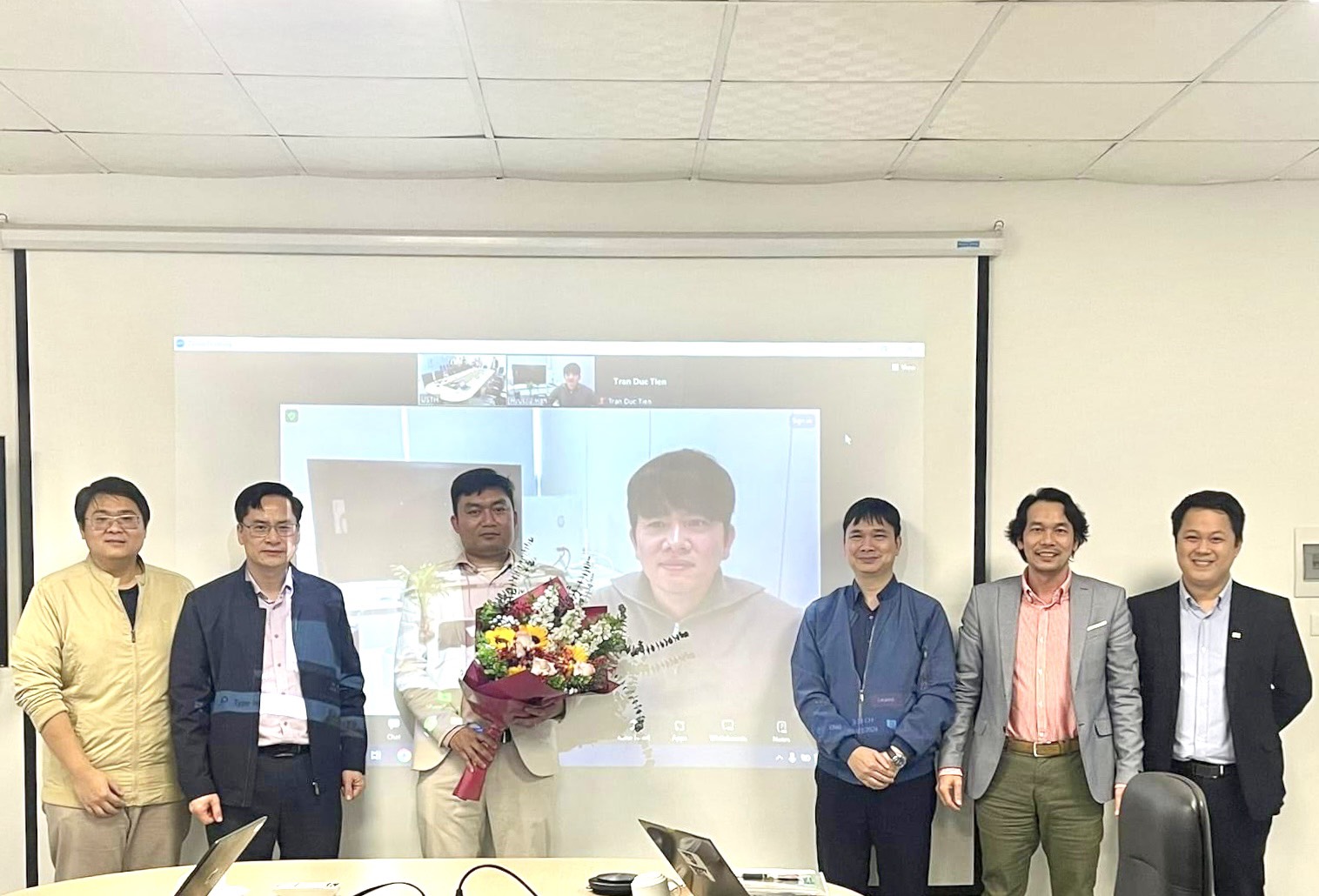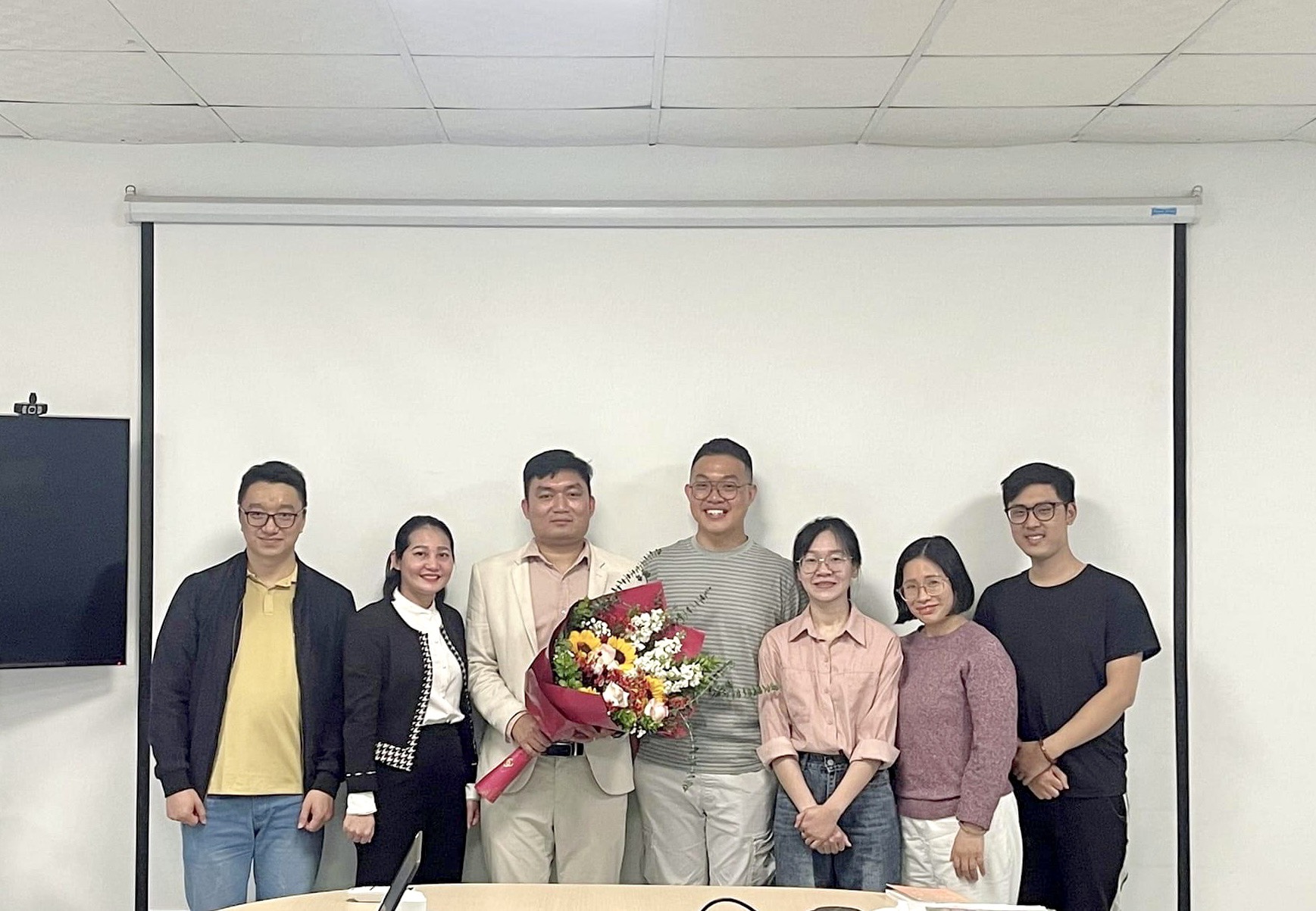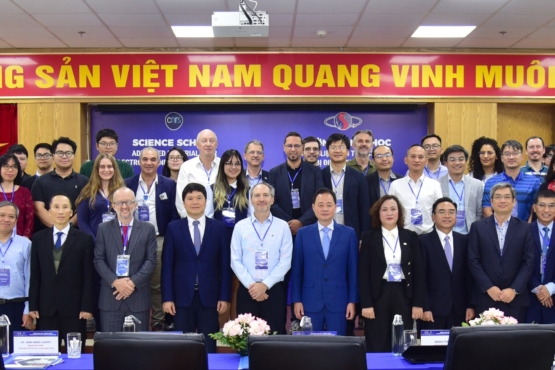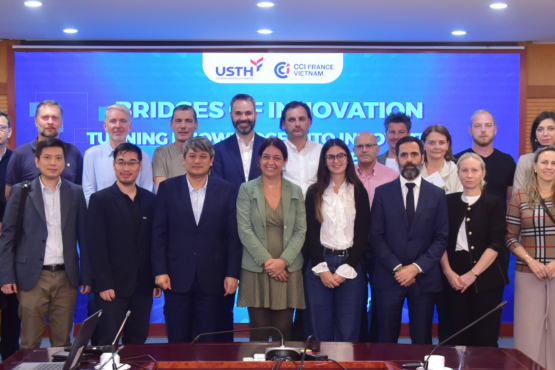On March 07th, 2024, University of Science and Technology of Hanoi (USTH) held a doctoral thesis defense for PhD student Tran Duc Tien, majoring in Advanced Materials Science and Nanotechnology with the thesis title: “Development of novel gold-based nanocatalysts for the hydrogen evolution reaction”.
The doctoral thesis was under the supervision of Assoc. Prof. Tran Dinh Phong (USTH), and Prof. Han Sung-Hwan (Hanyang University).
The PhD thesis defense was attended by 5 members of the Thesis Jury, including:
- Prof. Luc Huy Hoang, Hanoi National University of Education – Chairman
- Assoc. Prof. Hyuksu Han, Sungkyunkwan University – Reviewer
- Assoc. Prof. Phan Thanh Hai, Quy Nhon University – Reviewer
- Assoc. Prof. Do Danh Bich, Hanoi National University of Education – Member
- Dr. To Hai Tung, USTH – Member, Secretary
At the defense session, PhD student Tran Duc Tien presented the research results of his thesis to the jury.
According to PhD student Tran Duc Tien, the increase of global energy demand and environmental issues associated with using traditional energies are huge challenges for modern technology. Water splitting represents an attractive technology to convert electric or solar energies into chemical energy stored within molecules of H2 which can be transported and used as a clean fuel. Developing an alternative version of Hydrogen Evolution Reaction (HER) catalysts without platinum elements has been an extreme challenge to bring water splitting from laboratories to a viable H2-production method. It has been widely recognized, from both theoretical point of view and experimental results, that noble metals with d9 electron shells such as Pd and Pt exhibit excellent HER catalytic activity. However, other noble metals with d10 electron configuration such as Au, Ag, which are more abundant and less pricey, were predicted as totally “inactive” for HER because of their weak hydrogen adsorption energy.
This doctoral dissertation presents a series of surprising results demonstrating the outstanding HER catalytic activities of gold nanoparticles among various Pt-free catalysts. The spherical Au-NPs electrode with the loading mass of 350 µg/cm2 exhibits an onset potential of 50 mV vs RHE while required overpotential to reach a current density of 10 mA/cm2 is 180 mV vs RHE. Interestingly, an oxidation electrochemical treatment can remove the MoSx shell to fully recover the HER activity of Au-NRs.
The Thesis Jury highly appreciated PhD student Tran Duc Tien for his profound and practical research. The dissertation committee met in secret and voted, with a result of 5/5 votes in favor.
Before ending the defense session, PhD student Tran Duc Tien expressed his gratitude to his supervisors, lecturers and staff at USTH, family, and friends for their support and encouragement, which carried him to complete the thesis successfully.
Assoc. Prof. Tran Dinh Phong – Vice Rector of USTH congratulated PhD student Tran Duc Tien for successfully defending his thesis and thanked Prof. Han Sung-Hwan (Hanyang University) for his delicate supervision. Assoc. Prof. Tran Dinh Phong wished PhD student Tran Duc Tien an abundant career ahead.
Some photos of the Doctoral thesis defense:








